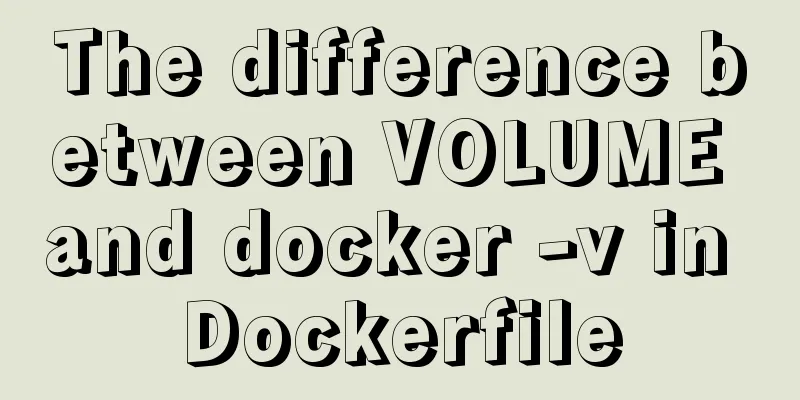How to deploy Solidity smart contracts using ethers.js

|
If you have developed DApps on Ethereum, you may have used web3.js in your front-end JavaScript. Ethers.js is a lightweight alternative to web3.js. Ethers.js has many advantages over Web3.js, and one of my favorite features is the state and key management that Ethers.js provides. The design scenario of Web3 is that DApp should connect to a local node, which is responsible for storing keys, signing transactions and interacting with the Ethereum blockchain. The reality is that this is not the case, and the vast majority of users will not run a geth node locally. Metamask effectively simulates this node environment in browser applications, so most web3 applications need to use Metamask to save keys, sign transactions, and complete interactions with Ethereum. Ethers.js adopts a different design approach, which provides developers with more flexibility. Ethers.js splits a "node" into two distinct roles:
ethers.js is a very streamlined Ethereum operation library, which contains the following four modules: 1. Create a new project sendtokenone
2. Modify package.json and install dependent packages a) The modified package.json file is as follows:
{
"name": "sendtokenone",
"version": "1.0.0",
"description": "ethers.js deployment contract",
"main": "",
"scripts": {
"test": "echo \"Error: no test specified\" && exit 1"
},
"keywords": [],
"author": "",
"license": "ISC",
"dependencies": {
"@openzeppelin/contracts": "^3.4",
"@truffle/hdwallet-provider": "^1.5.0",
"bignumber": "^1.1.0",
"bignumber.js": "^8.1.1",
"chai": "^4.2.0",
"chai-as-promised": "^7.1.1",
"eslint": "^5.15.0",
"ethereumjs-tx": "^1.3.7",
"ethers": "^5.4.7",
"request": "^2.88.2",
"web3": "^1.3.0"
},
"devDependencies": {
"@babel/core": "^7.12.3",
"@babel/preset-env": "^7.12.1"
}
}
b) Install dependent packages
3. Create a new smart contract3.1 Create an EventValue.sol contract In the sendtokenone/contacts directory, create an EventValue.sol contract with the following content:
// SPDX-License-Identifier: MIT
pragma solidity ^0.6.0;
contract EventValue {
event ValueChanged(address indexed author,uint oldValue,uint newValue);
uint _value;
constructor(uint value) public {
uint tmp = _value;
_value = value;
emit ValueChanged(msg.sender, tmp, value);
}
function getValue() view public returns (uint) {
return _value;
}
function setValue(uint value) public {
uint tmp = _value;
_value = value;
emit ValueChanged(msg.sender, tmp, value);
}
}
3.2 Writing deployment scriptsCreate a new folder named migDeploy, and then create a deployment script 1_deploy_event.js in this folder mkdir migDeploy cd migDeploy touch 1_deploy_event.js The content of 1_deploy_event.js is as follows:
const {ethers} = require("ethers")
const fs = require('fs')
let provider = new ethers.providers.JsonRpcProvider('http://localhost:8545')
function getHexString(prikeyPath) {
const privKeyFile = fs.readFileSync(prikeyPath).toString().trim();
const privKey = new Buffer.from(privKeyFile, 'hex');
return privKey
}
// var privKey = getHexString(".secret")
var privKey = '0x403d...23d5'
let wallet = new ethers.Wallet(privKey,provider)
var jsonStr = fs.readFileSync('./build/contracts/EventValue.json')
var jsonInfo = JSON.parse(jsonStr)
var jsonAbi = jsonInfo.abi
var bytecode = jsonInfo.bytecode
async function deployContract(abi,bytecode,wallet) {
let factory = new ethers.ContractFactory(abi,bytecode,wallet)
let contractObj = await factory.deploy(100)
console.log('contractAddress=',contractObj.address)
console.log('deploy txHash=',contractObj.deployTransaction.hash)
await contractObj.deployed()
}
deployContract(jsonAbi,bytecode,wallet)
3.3 Compile the contract a) Set ganache's IP to 127.0.0.1 and port to 8545
module.exports = {
networks:
development:
host: "127.0.0.1", // Localhost (default: none)
port: 8545, // Standard Ethereum port (default: none)
network_id: "*", // Any network (default: none)
},
},
// Set default mocha options here, use special reporters etc.
mocha:
// timeout: 100000
},
// Configure your compilers
compilers:
solc: {
version: "0.6.6", // Fetch exact version from solc-bin (default: truffle's version)
// docker: true, // Use "0.5.1" you've installed locally with docker (default: false)
// settings: { // See the solidity docs for advice about optimization and evmVersion
// optimizer: {
// enabled: false,
// runs: 200
// },
// evmVersion: "byzantium"
// }
}
},
};
Open a black frame console and use truffle to compile the contract
3.4 Deployment of ContractIn the black frame terminal, enter the following command to deploy the contract
The effect is as follows:
The contract address and txHash can be printed, indicating that the contract deployment is successful. This is the end of this article about using ethers.js to deploy Solidity smart contracts. For more information about ethers.js deploying Solidity smart contracts, please search for previous articles on 123WORDPRESS.COM or continue to browse the following related articles. I hope everyone will support 123WORDPRESS.COM in the future! |
<<: Docker installation and configuration image acceleration implementation
>>: Implementation of mysql data type conversion
Recommend
MySQL example to explain single-row functions and character math date process control
Table of contents 1. Character Function 1. Case c...
Solve the problem after adding --subnet to Docker network Create
After adding –subnet to Docker network Create, us...
Vue implements image drag and drop function
This article example shares the specific code of ...
Detailed steps for setting up the network for the virtual machine that comes with win10 (graphic tutorial)
1. Click the server host and click "Virtual ...
Implementation of Docker batch container orchestration
Introduction Dockerfile build run is a manual ope...
Detailed explanation of soft links and hard links in Linux
Table of contents 1. Basic storage of files and d...
HTML dynamically loads css styles and js scripts example
1. Dynamically loading scripts As the demand for ...
Vue project configures webpack-obfuscator to implement code encryption and obfuscation
background The company code is provided to third ...
A brief analysis of using coredump technology to trace the cause of process crashes in Linux
Recently, a problem occurred in the project. The ...
Detailed steps to use Arthas in a Docker container
What can Arthas do for you? Arthas is Alibaba'...
Enter the style file for the automatic search suggestion function: suggestion.css
Copy code The code is as follows: .sugLayerDiv{ p...
How to implement multiple parameters in el-dropdown in ElementUI
Recently, due to the increase in buttons in the b...
How to migrate sqlite to mysql script
Without further ado, I will post the code for you...
MySQL 5.7.21 winx64 installation and configuration method graphic tutorial
This article summarizes the notes for installing ...
Implementation of vscode custom vue template
Use the vscode editor to create a vue template, s...










